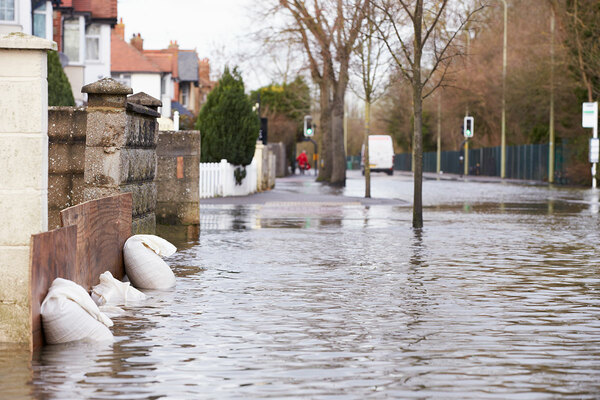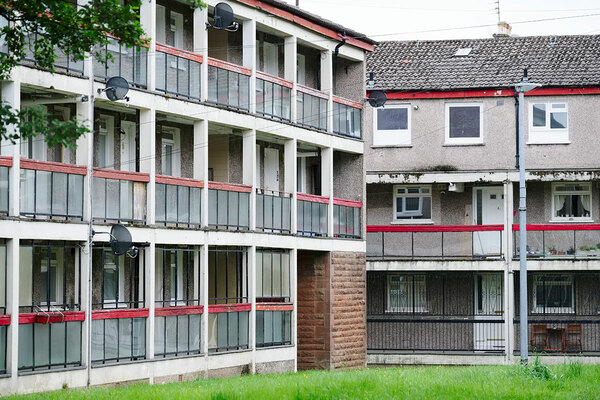You are viewing 1 of your 1 free articles

Will the shake-up of the planning system take into consideration flood risk and climate change?
The government’s vision for a new planning system looks to be much less democratic than the current process. Andy Bord and Hugh Ellis consider if it will have the flexibility to respond to a changing climate and increasing flood risks
When announcing the government’s new planning proposals, housing secretary Robert Jenrick quoted 19th century architecture critic John Ruskin who said, “We must build and when we do let us think that we build forever.” We agree – however, it is very important, as part of this, to maintain the democratic integrity of the process and plan for the effects of climate change, including flooding.
“While we’re conscious of the need to provide more homes for young people and to ‘build, build, build’ to boost the economy, this needs to be done in the right way”
The government’s recently released white paper scraps the existing planning system and outlines a radical alternative. Specifically, Mr Jenrick announced over the weekend that in “growth” regions, development will be allowed automatically, and in “renewal” regions, proposals would be given “permission in principle” as long as they follow the rules defined for those regions.
As it stands, we believe the white paper will dilute the democratic process by removing an opportunity for communities to have their say about proposed developments. In the current system, residents have two chances to be involved: once when a plan is drafted, and a second time when an application is submitted. In the new system, community members will only have one chance to voice concerns as the code is being prepared.
“The growing threat of climate change will have a profound impact on communities and planning policy will play a central role in building community resilience to mitigate climate change”
Government rationale for change seems to be that the current planning system is too cumbersome. However, recent research by the Local Government Association found that there are around one million unbuilt homes with planning permission in hand, indicating that it is not planning which is leading to delays in building homes. Can we say definitively that these radical, sweeping reforms will remove the ‘red tape’ that the government is so adamant is causing the housebuilding blockage?
The Town & Country Planning Association recently conducted a survey of local authorities that revealed the vast majority (83%) do not have either the knowledge or resources to incorporate the impact of climate change in planning decisions. Councils also said they needed better information on local impacts (77%) and the resources to review applications and conduct better analysis (71%).
The growing threat of climate change will have a profound impact on communities and planning policy will play a central role in building community resilience to mitigate climate change. By the 2050s, the annual costs from flooding in the UK are expected to increase by between 25% and 80% depending on whether global temperatures warm by 2°C or 4°C.
While we’re conscious of the need to provide more homes for young people and to “build, build, build” to boost the economy, this needs to be done in the right way.
If we really want to drive effective change and “build forever”, decision-makers and councils need to be given the skills and tools, applied to common standards in the face of climate change. Without these, more families will have to cope with the devastation of flooding.
Andy Bord, chief executive, Flood Re, and Hugh Ellis, policy director, Town and Country Planning Association
Sign up for the IH long read bulletin
Already have an account? Click here to manage your newsletters













